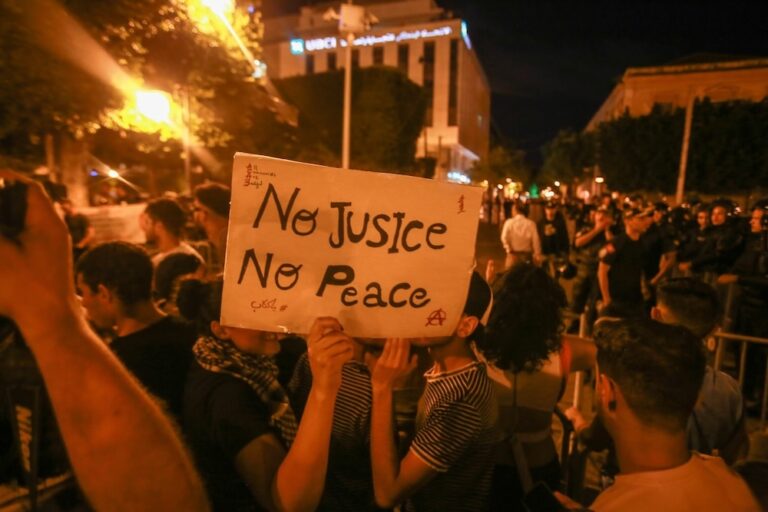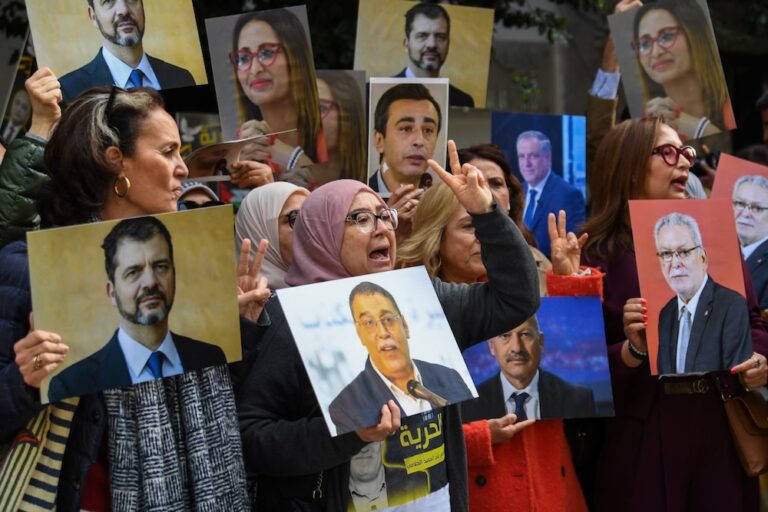As the crisis evolves, the 20 members of the IFEX-TMG call for country's rulers to respect human rights, including freedom of expression.
(IFEX-TMG) – 14 January 2011 – As the crisis in Tunisia evolves, the International Freedom of Expression Exchange Tunisia Monitoring Group (IFEX-TMG), a coalition of 20 IFEX members, calls for Tunisia’s rulers to respect human rights, including freedom of expression.
“In one short day, President Zine El-Abidine Ben Ali broke his promises and the state of emergency proved he had no intention to fully address human rights violations,” said IFEX-TMG chair Rohan Jayasekera, of Index on Censorship in London. “Now that Ben Ali has left the country, we call on Tunisia’s new rulers to immediately lift the state of emergency, which poses serious concerns for free expression, and to free all prisoners of conscience.”
The IFEX-TMG also calls on the governing body to uphold promises announced on Thursday to lift restrictions on the press and the Internet, and uphold basic human rights. As well, opposition dailies – two of which were confiscated in recent weeks – should be allowed to freely publish. Although journalists and bloggers detained for reporting on the protests were released this week, the IFEX-TMG further calls for the release of journalist Fahem Boukadous, languishing in jail since July for reporting on social protests in Gafsa back in 2008.
The past weeks saw a number of journalists and activists arrested and assaulted, such as two Radio Kalima journalists, Nissar Ben Hassen and Moez Jemai. Bloggers Slim Amamou and Aziz Amami were arrested but reportedly released yesterday. Rap musician El General was also briefly arrested in connection with his political online videos.
While most protestors and activists have reportedly been released, including political activist Hama Hamammi, managing director of the news website “al-Badil”( http://www.albadil.org ), who was arrested on 12 January, there is no news of a couple of other people. Ammar Amroussia, political activist and contributor to “al-Badil” remains in jail in Gafsa since his arrest on 29 December 2010 for inciting protests. Lawyer Mohamed Mzem is also reportedly still detained.
Meanwhile, Abdul-Razzak Al-Kilani, dean of Tunisian lawyers, announced yesterday that the Tunisian Bar Association would continue to engage in protests until judicial autonomy becomes a reality. Lawyers participated in a strike on 6 January to protest a lack of due process in the arrests of demonstrators, and today tried to hold a peaceful sit-in in front of the Interior Ministry – where thousands of others converged before being violently dispersed. Lawyers who have been peacefully protesting over the past weeks have been beaten, including Mohamed and Samia Abbou.
“It remains to be seen when the lethal crackdown on ongoing protests will end,” says Jayasekera, noting the history of violations where journalists have been silenced, independent voices stifled, independent trade unionists barred from speaking for their members and the judicial system manipulated. This is in addition to the widespread online censorship in Tunisia, including news reports of the demonstrations and the IFEX-TMG’s website and Facebook page.
Protests against unemployment erupted in Sidi Bouzid after a former university student who could find no other work than to sell fruits and vegetables on the streets set himself alight after police seized his goods in December.
Demonstrations grew into wider protests against the government and corruption. Local rights groups have condemned the use by police and army units of live ammunition on protestors, with their preliminary research showing the death toll has risen to more than 60 before today’s reported killings.
For more on the evolving situation, see regular updates posted at: http://www.facebook.com/IFEXTMG and on Twitter @TunisiaMonitor


